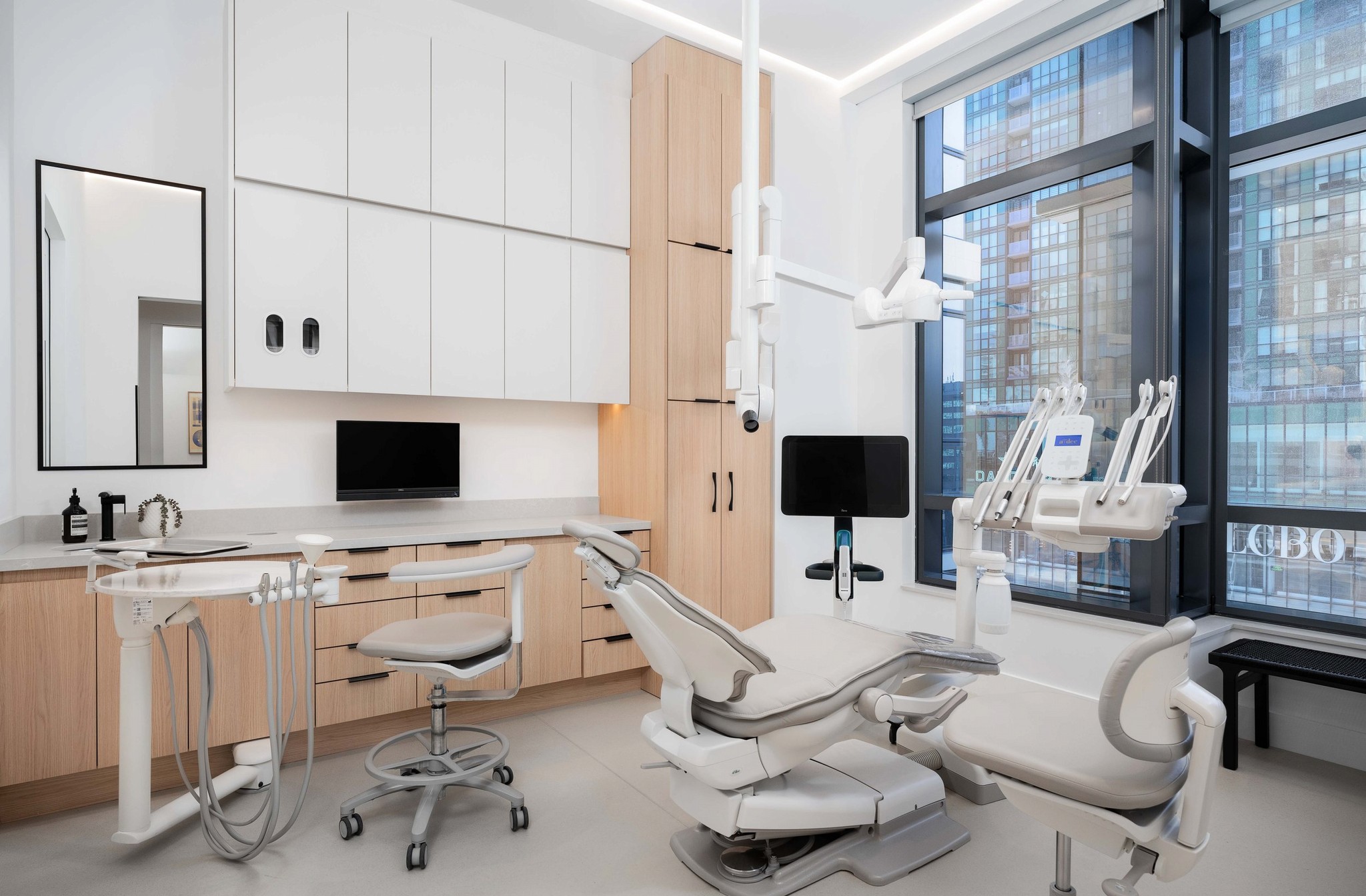Save Your Tooth with Root Canal Treatment at Sovrle Dental in North York
Are you experiencing tooth pain or sensitivity? A root canal might be the solution you need. At Sovrle Dental in North York, we specialize in root canal treatments that relieve pain and save teeth. This guide will help you understand everything you need to know about root canals and how they can improve your oral health.
What Is a Root Canal?
A root canal is a dental procedure used to treat infection or inflammation inside a tooth. The inside of your tooth contains a soft tissue called the pulp, which has nerves and blood vessels. When the pulp becomes infected it can cause severe pain and lead to abscesses if not treated.
How Does Root Canal Treatment Work?
Removal of Infected Pulp: The infected or inflamed pulp is removed from inside the tooth.
Cleaning and Disinfecting: The inside of the tooth is cleaned and disinfected.
Filling and Sealing: The space inside the tooth is filled with a special material and sealed. This prevents future infection.
Restoration: A crown or filling is placed on the tooth to restore its function and appearance.
Benefits of Root Canal Treatment
Pain Relief: Eliminates toothache and sensitivity caused by infection.
Saves Your Natural Tooth: Avoid extractions and implants or bridges.
Restores Function: Allows you to chew and bite normally.
Prevents Spread of Infection: Stops the infection from affecting other teeth and your general health.
Aesthetics: Restored tooth blends seamlessly with your natural teeth.
Is a Root Canal Right for You?
You might need a root canal if you experience:
Persistent Toothache: Especially when chewing or applying pressure.
Sensitivity: Prolonged sensitivity to hot or cold temperatures.
Swelling and Tenderness: In the gums near the affected tooth.
Darkening of the Tooth: Discolouration indicating nerve damage.
Pimple on the Gums: A recurring bump that releases pus.
Note: Only a dentist can determine if a root canal is necessary. Early diagnosis can save your tooth and prevent complications. If you are experiencing any of these symptoms, please schedule an appointment!
The Root Canal Procedure at Sovrle Dental
Step 1: Initial Consultation
Symptom Discussion: Share any pain or discomfort you're experiencing.
Examination: We'll examine your tooth and may take X-rays to assess the extent of the infection.
Treatment Plan: We'll explain the procedure and answer any questions you have.
Step 2: Anesthesia
Local Anesthesia: Administered to numb the tooth and surrounding area. This helps reduce any pain you might feel.
Step 3: Removing the Infected Pulp
Access Opening: A small opening is made in the crown of the tooth.
Pulp Removal: Infected or dead pulp tissue is carefully removed.
Cleaning: The inner chambers and root canals are cleaned and shaped.
Step 4: Filling and Sealing
Filling: The cleaned space is filled with a biocompatible material called gutta-percha.
Sealing: A temporary filling is placed to close the opening.
Step 5: Restoration
Permanent Restoration: A crown or permanent filling is placed to protect and restore the tooth.
Function and Appearance: The tooth is restored to full function and looks natural.
Caring for Your Tooth After a Root Canal
Good Oral Hygiene: Brush twice daily and floss regularly.
Avoid Hard Foods: Be cautious with chewing hard foods until the tooth is fully healed.
Follow-Up Appointments: Attend all scheduled visits for optimal healing.
Regular Dental Check-Ups: Visit Sovrle Dental every six months for an oral exam and professional cleaning.
Frequently Asked Questions About Root Canals
Is a Root Canal Painful?
Minimal Discomfort: Modern techniques make the procedure like getting a filling.
Pain Relief: Most patients feel immediate relief from the pain caused by the infection.
How Long Does a Root Canal Take?
One to Two Visits: The procedure can often be completed in one visit. Sometimes a second appointment is needed for the crown placement.
How Much Does a Root Canal Cost?
Varies by Case: The cost depends on the complexity of the issue and which tooth is affected.
Insurance Coverage: Many dental insurance plans cover root canal treatment.
Can the Tooth Get Infected Again?
Rare Occurrence: Reinfection is uncommon if proper oral hygiene is maintained.
Restoration Importance: A proper crown or filling is essential to protect the tooth.
What Are the Alternatives to a Root Canal?
Tooth Extraction: Removing the tooth is the only alternative. After the tooth is removed, replacements like implants or bridges will be placed. This is to prevent tooth movement and alignment problems.
Why Choose Sovrle Dental in North York?
Experienced Professionals: Our dentists have extensive experience in performing root canals.
Advanced Technology: We use microscope technology for precise and efficient treatment.
Comfortable Environment: We focus on your comfort and ensure a stress-free experience.
Personalized Care: Treatment plans tailored to your specific needs.
Convenient Location: Located at Yonge and Sheppard in North York, making visits easy.
Schedule Your Appointment Today
Don't let tooth pain disrupt your life. Contact Sovrle Dental in North York, Toronto, to book your consultation. Our friendly and professional team is here to help you preserve your natural teeth and maintain a healthy smile.



